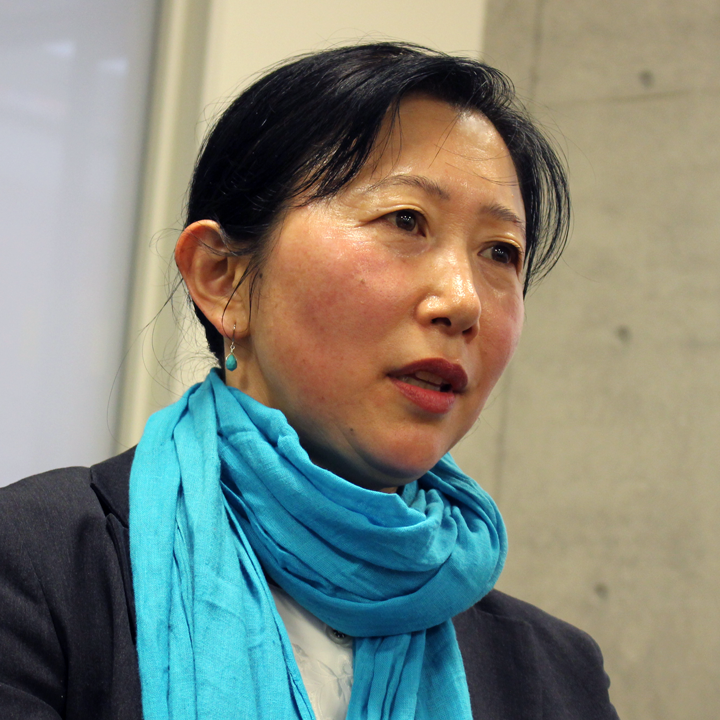I would like to thank the International Women’s Network for Democracy and Peace honouring me with this special Award, Victoire Ingabire Umuhoza Prize for Democracy and Peace.
To be honest, I am not sure whether I truly deserve this prize, but if I do, it is thanks to so many dedicated and respectable people whom I met with and who have enormously inspired me.
Let me tell you who these people are.
First and foremost, the victims of genocide and war in the Great Lakes Region, including refugees, internally displaced persons, survivors of sexual violence, both women and men, and survivors of other serious human rights violations. I will tell you more about the refugees later.
Second, the past laureates of this Award, many of whom I have been in touch with in order to reinforce our research and advocacy.
Third, Dr. Denis Mukwege—I don’t need to tell you who he is obviously—, who has been raising especially the United Nations Mapping Report, which seems to be taboo for the so-called international community, and remains a very strong advocate for democracy, justice and peace, as well as women’s rights worldwide.
Fourth, the late Barbara Harrell-Bond, the Founding Director of Refugee Studies Center at Oxford University. Her organization was the only organization worldwide which opposed to the invocation of cessation clause of Rwandan refugees. And she introduced me lots of refugees and non-refugees, and supported and advised my research and advocacy.
And last but not least, Mme Victoire Ingabire of course. Unfortunately, I have never met her in person but she has become my hopeful hero ever since she made that famous and historical speech in 2010 in front of Kigali’s Genocide Memorial about the need to commemorate both Hutu and Tutsi victims. Since then, I have been writing some articles in Japanese about her courage, her leadership, and her moral strength.
Now, let me talk about refugees as tomorrow June 20 is World Refugee Day. In particular, I would like to talk about Rwandan refugees together with Victoire’s important contribution. Why do I focus on Rwandan refugees? It is because the so-called international community tends to connect Rwanda with genocide and genocide victims—which is understandable—, but the same actor has forgotten or ignored—intentionally or otherwise— the presence of Rwandan refugees and their testimonies.
We are fully aware that from 1990 to 1997, that is prior to and in the aftermath of genocide, massive forced movement inside and out of the country took place repeatedly. This movement was not a collateral effect, but it was planned. And it was used as a political and economic strategy by many forces so that the RPF can seize power. This fact has been totally sidelined.
For my research on Rwandan refugees, I met about 90 of them in three continents. What really impressed me was their attitude: their wise and non-violent struggle, their hardworking characteristics, and their eagerness in pursuing higher education even in an unstable environment. To my knowledge, Rwandan refugees have written and published more number of books than any other refugees from Africa or other continents. I have read many of them, and I believe that this fact Rwandan refugees shared their testimonies, including their criticism of the Rwandan government, shows their strong commitment in truth telling, reconciliation and peace. These refugees should deserve more recognition and attention worldwide just like Victoire’s crucial contribution.
While I have been impressed with Rwandan refugees’ strength, I was also shocked with one fact, among the many; that is, many Rwandans have become used to being refugees. I noticed this when I first worked in Rwanda in 1995 with the UNHCR. Many of my Rwandan colleagues were former refugees, and even some people who remained in the country had many relatives who were refugees. The same phenomenon continues today not only in Rwanda but also in the DRC and Burundi.
This is not only a sad reality but this is abnormal. This is not acceptable. Because nobody on earth should leave their homes against their will. As you all know, Great Lakes Region is a beautiful heaven. Who on earth wishes to abandon those areas?
Not only that. Many Rwandan refugees’ talent, capacity and intelligence is not well utilized in the countries of asylum, just because they are considered as “outsiders.” If they remained in their own country, they could have enormously contributed for the country’s development. This is simply a waste of human capital.
However, many governments and international organizations apparently consider refugee flow in general as “natural” phenomenon, and discuss how to assist, protect and settle refugees. The same actors apparently are not so interested in solving the root causes of refugee flows, that is persecution, human rights violation, and conflict. Yes, they talk about it but only in a general manner without pursuing and punishing the responsible actors for this forced displacement, who are mostly the governments.
The governments in Rwanda and the Great Lakes Region have been harassing, torturing and massacring people, yet foreign governments, including donor countries, and international organizations just keep silent. We seriously have to stop these crimes, and we have to change the general perception of refugees.
This is why we need trustful and sincere leaders like Victoire Ingabire who have been fighting for the democracy, peace and human rights for all the people. IF democracy and peace were there in Rwanda and the whole Great Lakes Region, then refugee flow would not have taken place in the first place.
With this award honored to me, I promise that I will continue to maintain Victoire’s spirits, and enhance my research and advocacy together with all of you.
Thank you once again.
Source: Réseau international des femmes pour la Démocratie et la Paix (RifDP)
Play 37:08 – 44:37
